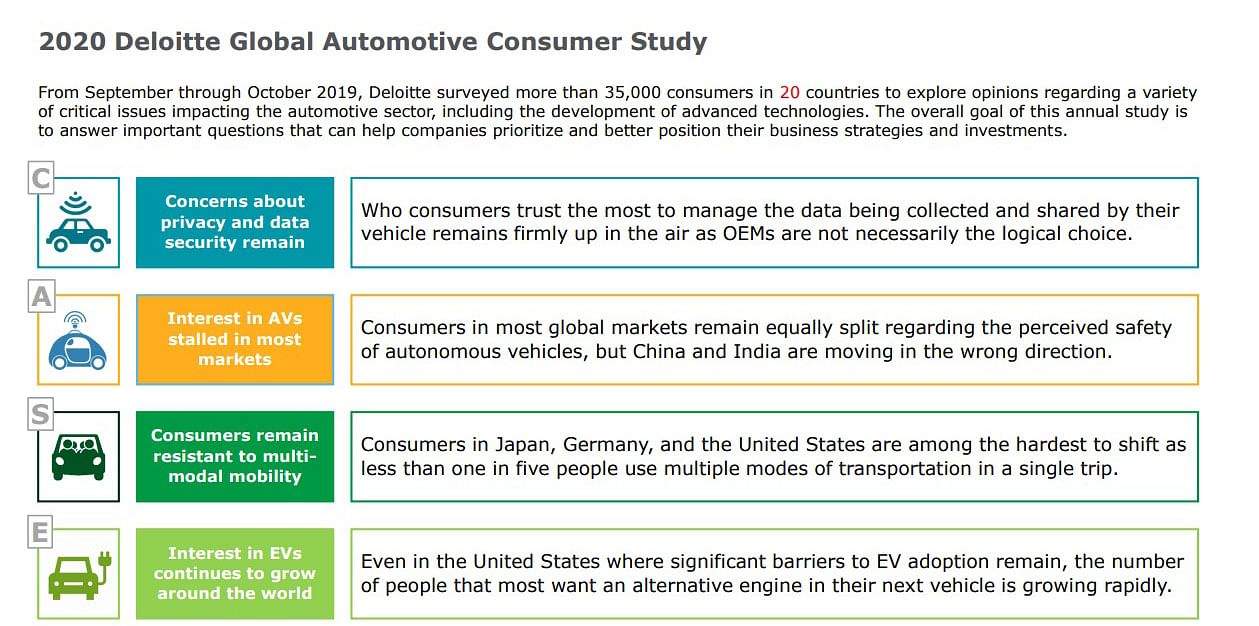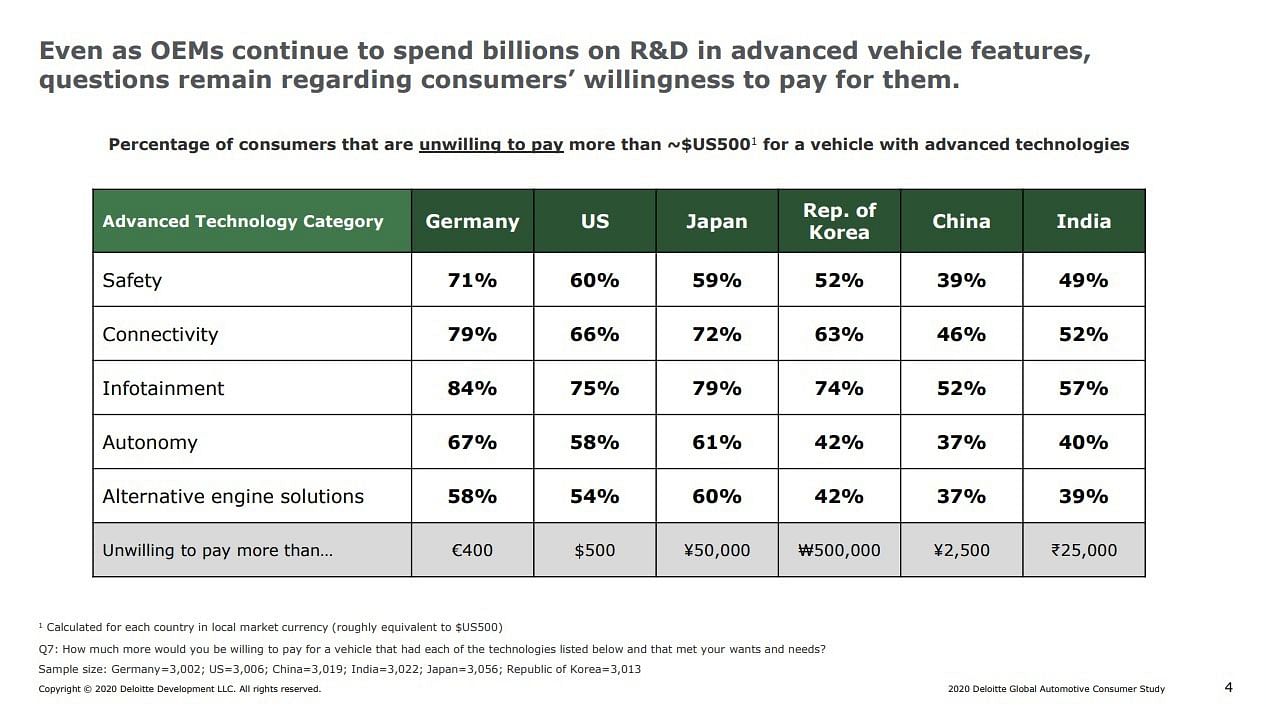Deloitte India study says India open to connected vehicles but data privacy a concern
Global Automotive Consumer Study 2020 by Deloitte India reveals that though perception about connected vehicles has seen a positive shift, Indians are doubtful about safety of autonomous vehicles.
As sustainable mobility and connected vehicles mega trends take centre stage, audit and financial consulting firm, Deloitte India’s Global Automotive Consumer Study 2020 reveals that eighty percent of Indian respondents are excited about using connected vehicles and convinced of its benefits but 69 percent respondents are also worried about the security of their biometric data shared with connected vehicles.
This 2020 study that gives a glimpse on key future trends in the automotive sector which are shaping consumer perceptions recorded responses of over 35,000 consumer across 20 global markets including India, Germany, Canada, United States, France, Spain, Italy, China, Japan and South Korea. According to the key highlights from the study, India topped the chart in the list of nations which are concerned about data protection.
Owning a vehicle is becoming more expensive in India on the back of rising fuel cost and roll-out of the BS VI emission norms April onwards. Ride hailing is seen emerging as a top theme in India at the moment. Seventy-four percent of survey respondents from India prefer a ride hailing service instead of a traditional taxi. About 64 percent question the need to own a vehicle as opposed to 51 percent respondents in 2019.

Commenting on the findings, Rajeev Singh, partner and Automotive leader, Deloitte India said, “The automotive sector in India still battles with critical issues of sales slowdown at one end whilst at the other there is a constant inclination of technology adoption and best use of research and development in India. While the last year hurt automotive players in short term, the rising sales of internet connected cars and growing interest around BEVs indicate that India’s discerning millennials’ tech savviness to gain value for money will keep automotive players on their toes. We see a disruptive yet profitable road ahead for OEMs and automotive players as they work to shape an enriching customer experience for Gen Z and millennials who have a unique outlook on life. Our consumer survey indicates Indian consumers are open to the idea of investment for advanced vehicular technologies and this trend has improved over the years; one of the key areas for OEMs to focus on.”
Concerns about autonomous vehicles
Deloitte India says that although perception about connected vehicular technologies has seen a positive shift, Indians are doubtful about the safety of autonomous vehicles and ability of automakers to get them on road. The percentage of consumers, who agree that autonomous vehicles would not be safe to use, is expected to increase by 10 percent this year.
Another important trend seen in the study is around BEVs and alternative powertrain vehicles and the interest in this technology continues to expand. In fact, interest in BEVs will rise if fossil fuel prices increased significantly says the report. Due to lack of right infrastructure, majority of consumers across markets may not be ready just yet to pay extra for an EV. Consumers across geographies agree that it is the responsibility of either OEMs or the governments to set up a network of EV charging stations.
Consumers across geographies continue to question the safety of autonomous vehicles and the ability of traditional automakers to bring fully autonomous technology in market.

The cost factor
In the near future, connected cars will become a common phenomenon in India. The study says that the relevance in the next few years will increase with the expected wide-scale adoption of BEVs. The connectivity features will help owners locate nearby charging stations and access telematics data amongst several other things. However, consumers in some countries are not willing to pay so much extra for an EV.
There lies a challenges in getting connected vehicles on roads in India for OEMs, as the country is a price-driven market. The perception of Indians with respect to safety while driving connected vehicles is also relatively low, as per the report.
RELATED ARTICLES
Cosmo First diversifies into paint protection film and ceramic coatings
The Aurangabad, Maharashtra-based packaging materials supplier is leveraging its competencies in plastic films and speci...
JSW MG Motor India confident of selling 1,000 M9 electric MPVs in first year
The 5.2-metre-long, seven-seater luxury electric MPV, which will be locally assembled at the Halol plant in Gujarat, wil...
Modern Automotives targets 25% CAGR in forged components by FY2031, diversifies into e-3Ws
The Tier-1 component supplier of forged components such as connecting rods, crankshafts, tie-rods, and fork bridges to l...






 By Autocar Professional Bureau
By Autocar Professional Bureau
 20 Jan 2020
20 Jan 2020
 11188 Views
11188 Views









